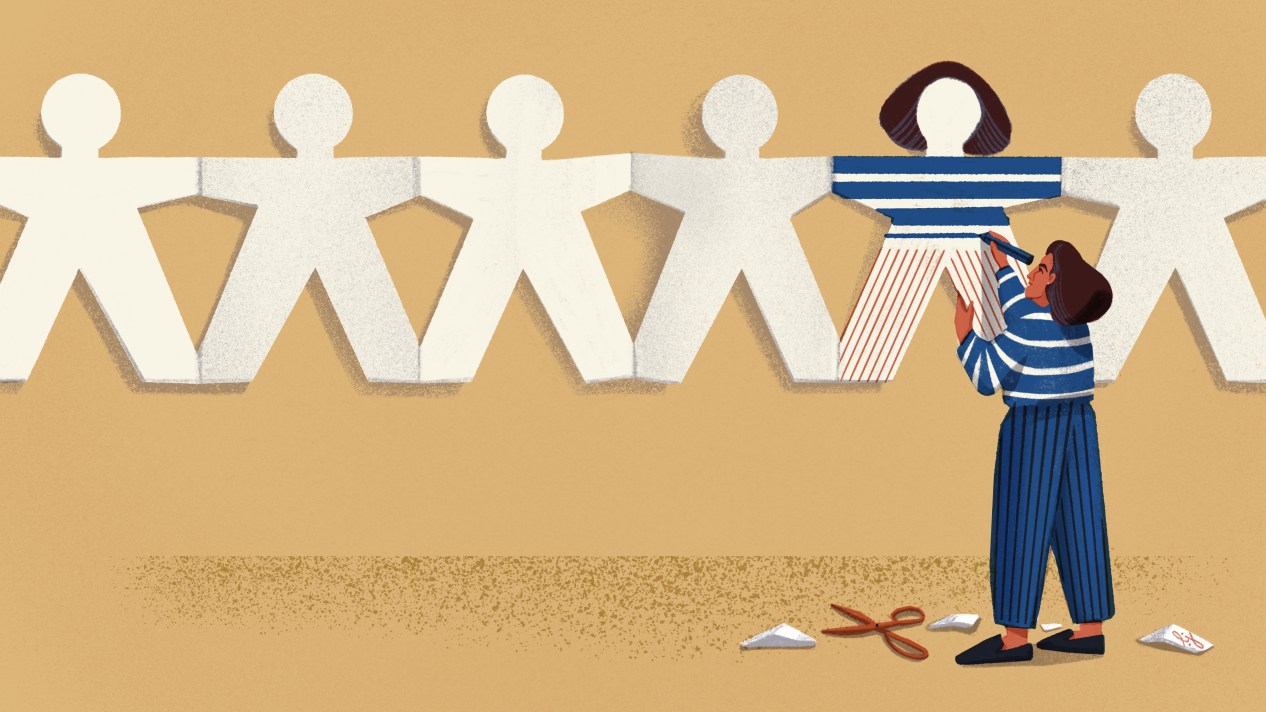Even before COVID-19 physically separated people from their loved ones, loneliness was surging in the general population. With three in ten American adults saying they felt lonely at some point every day, the World Health Organization has identified social isolation as “a priority public health problem.”
Churches are attempting to address the disconnect and dissonance caused by the pandemic, cultural divides, and technology, but the challenges can seem overwhelming. While people struggle to find motivation and connection, ministry leaders are wondering how to re-engage congregants in a way that meets their individual needs and contributes to the flourishing of the local church.
Emerging research suggests that helping people grow in self-awareness can be a catalyst in helping them shift from isolation to community.
“Simply put, we create loneliness through our thinking, and lonely thinking perpetuates loneliness,” Dr. Tara Well wrote at Psychology Today. “Clear and compassionate self-awareness can help break the cycle. By strengthening your relationship with yourself and perceiving yourself with honesty and caring, you can shed light on what you might be doing to maintain an uncomfortable state of loneliness."
How might churches empower their congregants to know themselves better? And what does it look like for self-awareness to lead to less loneliness and deeper relationships? In Sara Johnson’s case, it looked like planting seeds: the rose and the relationship kind.
Cultivating Flowers and Friendship
“Interpersonal and artistic.”
Yeah, that tracks, Johnson thought as she reviewed the results of her EveryGift Inventory, a gifts assessment aimed at naming and encouraging strengths in individuals. She was trained in both of these areas and found herself enjoying opportunities to connect with others and to express herself creatively. Those words—interpersonal and artistic—served as confirmation of her gifts, a nudge to keep using them, and encouragement that she was growing in self-awareness.
Johnson’s penchant for the interpersonal meant she valued community, excelled at bringing people together, and communicated effectively with others. Her artistic inclination led her to pursue and nurture beauty. As she considered what it might look like for her to combine these two gifts, an idea was born: bringing neighbors together to grow and give flowers.
In short order, a small group started growing flowers together that they then picked, arranged, and shared with neighbors.
“We came together with the idea to bring some beauty to the neighborhood,” Johnson said. “But it also met this need for all of us—for community and friendship and connection.”
As the project’s scope and blooms have grown, Johnson and her fellow gardeners have spent untold hours together. Once a month they make bouquets and deliver them around the neighborhood—some to homes, others to the senior center down the road, more to the small businesses in the nearby office district.
Johnson has derived a great deal of joy in watching friends who had never kept a plant alive think creatively about where they could garden in an apartment. More importantly, gardening together has created a safe space for participants to learn, encourage, and grow with one another.
One Body, Many Members
“If you look at every flower individually, they look quite miserable,” writes Henri Nowen, “but put them together in a vase and they become a bouquet, and that’s quite attractive.”
Having insight into the gifts of others can bring about tremendous joy—and for good reason. God designed the members of the body of Christ to display their gifts in their fullness and for the good of each other.
When the prophet Nehemiah set out to rebuild the wall that had been destroyed during the Babylonian exile, he knew God had called him to embark on a specific task that others may be slow to join. But as he remained faithful to who God made him to be—a driven, committed leader—others began to come alongside him.
Some laid beams while others placed bolts, bars, and doors. Others brought their sons and daughters to work with them in restoring their city’s monuments. Goldsmiths, merchants, priests, government officials, and more brought their skills, abilities, and gifts to do something meaningful together.
Like the fallen wall, the struggles in local communities often seem too systemic or large for a single person to address. That's why the most valuable tools to combat loneliness are designed with neighborhoods in mind. Not only can participants learn more about themselves, but they can also learn how their unique skills fit into the larger context of building communities of hope and connection.
Know Thyself to Know Thy Neighborhood
As we emerge from pandemic living, some may be struggling to take the first step toward reconnecting with their neighbors. To ease that anxiety, Lutheran Hour Ministries offers a new tool to help people reflect on their strengths. From growing gardens to shopping for groceries, from creating and delivering Valentine’s cards to organizing a community fundraiser, “there’s something for everyone,” Johnson says.
Whatever your gifts or passions, assessments like the EveryGift Inventory affirm the ways you were perfectly and wonderfully made, sparking your imagination and helping you serve others with your gifts. In doing so, you just might find that your loneliness begins to lift, giving way to joyful community.
Posted

